By Treatment
- Liposuction Surgery
- Hepatitis Treatment
- Ayurvedic Treatment in India
- Naturopathy Treatment in India
- Spa Therapy Treatment in India
- Aromatherapy in India
- Liver Transplant
- Liver Fibrosis
- Liver Tumor
- Liver Cancer
- Liver Cirrhosis Treatment
- Coronary Artery Bypass Grafting Surgery
- Heart Valve Replacement
- Angioplasty
- Aortic Valve Replacement
- ASD/VSD closure surgery in India
- Cardiac Tumours in Children
- Cardiac Ablation Surgery
- Renal Angiogram
- Cardiac Tumour Treatment
- Pacemaker Implant
- CRT-D Implant
- CRT-P Implant
- Hernia Surgery
- Spine Surgery
- Spine Tumor Surgery
- Spinal Cord Cancer
- Cervical Spine Surgery
- Spinal Fusion Surgery
- Facet Joint Spine Surgery
- Knee Replacement Surgery
- Rhytidoplasty Surgery in India
- Hip Replacement Surgery
- Shoulder Replacement Surgery
- Cataract Surgery
- TAVR (Transcatheter Aortic Valve Replacement) Treatment in India
- Breast lift surgery in India
- Face Lift Surgery
- Rhinoplasty surgery in India
- Yoga and Meditation in India
- Thigh Lift surgery in India
- Breast augmentation
- Robotic Knee Replacement Surgery
- Mentoplasty Treatment in India
- Arthroplasty surgery in India
- Cordotomy Surgery
- Arthroscopy Surgery in India
- Macular Degeneration
- Spinal Decompression Surgery
- Penile Implant Surgery in India
- Erectile Dysfunction Treatment in India
- Diabetes cause Impotence Treatment India
- Peyronie's treatment in India
- Urethroplasty Surgery in India
- Artificial Urinary Sphincter Surgery in India
- Phalloplasty Surgery in India
- Penectomy Surgery India
- Priapism Treatment in India
- Multiple Sclerosis
- Hysteroscopic Surgery
- LEEP (Loop Electrosurgical Excision Procedure) Treatment
- Vaginal Hysterectomy Surgery
- Lasik Eye Surgery
- Laparoscopic Myomectomy
- Glaucoma Treatment in India
- Hysteroscopy Treatment
- Astigmatism Treatment in India
- Corneal Transplant
- Cochlear Transplant
- Dialysis & Kidney Transplant
- Hysteroscopic Myomectomy
- Tympanoplasty Surgery
- Block Dissections of Neck, Endolymphatic Sac in India
- Interstitial Cystitis Treatment
- Total Laparoscopic Hysterectomy (TLH)
- Multiple Scoliosis Surgery
- Myomectomy Treatment
- Stapedectomy Surgery
- Thyroid Cancer Treatment
- Dilation and Curettage
- Trigger Point Injection (TPI)
- Deep Brain Stimulation (DBS)
- Bone Marrow Transplant
- Scoliosis Surgery in India
- Spondylolisthesis Spine Treatment
- Colposcopy
- Ossiculoplasty surgery in India
- Laparoscopic Uterine Suspension Surgery
- Rotator Cuff Tear Surgery
- Laryngectomy Surgery in India
- Micro Laryngeal surgery in India
- Laparoscopic Supracervical Hysterectomy
- Pelvic Laparoscopy Surgery
- Functional Endoscopic Sinus Surgery in India
- Cardiology
- Liver Disease Treatment
- Osteoarthritis Spine Treatment
- Arthrodesis Surgery
- Gallbladder Cancer Treatment
- Pancreatic Cancer Treatment
- Meningiomas Treatment
- Ovarian Cancer Treatment
- Testicular Cancer Treatment
- Anterior Cruciate Ligament (ACL) Surgery
- Bone Marrow Cancer
- Orthopaedics & Joint Replacement
- Degenerative Disk Spine Treatment
- Herniated Disc Spine Treatment
- Neurology and Neurosurgery
- Anal Cancer Treatment
- Kidney Cancer
- Minimally Invasive Spine Surgery
- Bladder Cancer Treatment
- Stomach Cancer Treatment
- Mouth Cancer Treatment
- Bone Cancer Treatment
- Throat Cancer Treatment
- Breast Cancer Treatment
- Chemo Treatment
- Colon Cancer Treatment
- Esophageal Cancer Treatment
- Obstetrics & Gynaecology
- Herniated Disc Surgery
- Aortic Stent Grafting
- Head and Neck Cancer Treatment
- Artificial Spine Lumbar Disc Replacement
- Spine Osteotomy
- Lumbar Laminectomy for Spine or Spinal Decompression
- Lungs Cancer Treatment
- Cancer Treatment
- Breast Surgery
- Cardiothoracic & Vascular Surgery
- Head & Neck Cancers
- Prostate Cancers Treatment
- Neuroscience
- Heart Transplant
- Liver Surgery
- Pediatric Neurosurgery
- Coronary Angiogram
- End-Stage Liver Disease Treatment
- Peripheral Angioplasty
- Cardiac Resynchronization Treatment
- Radiofrequency Ablation
- Automatic Implantable Cardioverter Defibrillator
- Percutaneous Transvenous Mitral Commissurotomy
- Coronary Angioplasty
- Cerebral Angiogram
- Peripheral Angiogram
- Angiography
- Eyelid Surgery
- TLIF Surgery
- Ear Surgery
- Body Lift Surgery
- Endoscopic Disc surgery
- Endoscopic Cranial Surgery
- Stroke Treatment
- Renal Angioplasty
- Leukemia Treatment
- Peripheral Neuropathy Treatment
- Parkinson’s disease
- Cardiac Catheterization
- Percutaneous Transluminal Angioplasty
- Pericardial Cysts
- Cardiac Arrest Treatment
- Bariatric & Metabolic Surgery
- Deceased Donor Liver Transplant
- Living Donor Liver Transplant
- Electrophysiology Study (EPS)
- Shoulder and Elbow Replacement
- Urology
- Pediatric Heart Surgery
- Cardiac Surgery
- Vascular Surgery
- Endoscopic Surgery
- Pacemaker Implantation
- Urological Oncology
- Alzheimer’s Disease Treatment
- Reconstructive Urology
- Endocrinoly
- Lumbar puncture
- Pediatric Liver Transplant
- GI surgery
- GI Oncology
- Hemodialysis
- Hemorrhoids Surgery
- Endoscopy
- Gastric Bypass Surgery
- Renal Failure
- Headache
- Kidney Biopsy
- Sleep Disorders
- Craniotomy Surgery
- Atrial Fibrillation Surgery
- Heart Implants
- Neuropathy
- Robotic Urology
- Blood Clot Brain Surgery
- Laser Urological, Surgery
- Brain Haemorrhage Treatment
- Retinal Surgery
- Laser Eye Surgery
- Heart Valve Disease
- Renal Transplant
- Hematology
- Thalassemia Treatment
- Sports Injury
- Sickle Cell Anemia
- Cosmetic and Plastic Surgery
- Robotic Joint Replacement
- Multiple Myeloma
- Pediatric oncology
- Medical oncology
- Minimal Invasive Brain Surgery
- Open Heart Surgery
- Rheumatology & Clinical Immunology
- Lymphoma
- Neonatology
- Laparoscopic Surgery
- Radiology
- Blood Cancer
- Dermatology and Cosmetology
- Paediatric Cardiology
- IVC Filter Insertion Procedure
- Minimal Access Surgeries
- Paediatric & Adolescent Endocrinology
- Dentistry and Maxillofacial Surgery
- Diabetology
- Interventional Cardiology
- Reconstructive Surgery
- Dietetics and Nutrition
- Oncology
- Radiation Oncolgy
- Aplastic Anemia
- Gynaecology - Oncology
- Brain Tumor Surgery
- Ophthalmology
- Abdominal Surgery
- Haemato Oncology
- Onco-Neurosurgery
- Thoracoscopic surgery
- Acute Leukaemia Treatment
- Kidney Failure Treatment
- Oncology & Oncosurgery
- Hepatobiliary
- Gland Surgery
- Liver Biopsy
- Gastroenterology
- Nephrology
- Interventional Radiology
- Transplant Nephrology
- Urological Cancers
- Neurovascular Surgery
- Internal Medicine
- Kidney Stone
- Heart Surgery
- Radiosurgery
- ENT & Cochlear Implant
- Chronic Liver Disease
- Cosmetic Eye Surgery
- Minimally Invasive Surgery
Liver Cirrhosis
Cirrhosis of the liver is a serious condition that affects the normal functioning of this vital organ. The treatment for liver cirrhosis usually depends on the problem which caused it. Although it cannot be cured, there are many ways to manage its symptoms and complications. Among the various causes of cirrhosis, hepatitis, fatty liver, alcohol abuse, and nonalcoholic steatohepatitis are some of the main diseases.

Causes and risk factors of cirrhosis
Cirrhosis can be caused by various factors, the most common being excessive alcohol consumption and chronic viral hepatitis. Other causes include non-alcoholic fatty liver disease, autoimmune hepatitis, and certain genetic disorders. It is important to note that not everyone who drinks alcohol excessively or has hepatitis will develop cirrhosis. However, these factors increase the risk significantly. Additionally, certain lifestyle choices such as a poor diet, obesity, and smoking can also contribute to the development of cirrhosis.
Symptoms
Initially, there are no symptoms. However, gradually, the liver damage gets worse, and many symptoms start getting visible. These includes:
- Weakness and fatigue
- Weight loss
- Loss of appetite
- Jaundice
- Nausea
- Intense itching
- Whitening of nails
- Redness in the hand palms
- Blood vessels looking spider web
Stages of Liver Cirrhosis
A patient with liver cirrhosis can be at two stages. After diagnosis, the doctor can tell you the stage of the patient. Based on the functional ability of the liver, the doctor will either say compensated stage or decompensated stage. The two stages of cirrhosis use a different types of treatments.
-
Compensated cirrhosis
Compensated cirrhosis doesn’t show any visible symptoms. The liver can still work because there are adequate healthy cells to cover up the scar tissues and damaged cells caused by liver cirrhosis. A patient can survive for many years in this stage of cirrhosis.
-
Decompensated cirrhosis
Decompensated cirrhosis is a deteriorating stage the patient goes through after compensated liver cirrhosis. At this stage, there is an increase in liver scarring. As a result, the development complications are rapid.
Diagnosing cirrhosis: Tests and procedures
To diagnose cirrhosis, doctors may perform various tests and procedures. These can include blood tests to assess liver function, imaging studies such as ultrasound or MRI, and a liver biopsy to examine a small sample of liver tissue. These diagnostic tools help determine the extent of liver damage and assist in developing an appropriate treatment plan. It is important to undergo these tests if cirrhosis is suspected, as early detection can significantly improve outcomes.
Complications of cirrhosis and management
Cirrhosis can lead to a range of complications that require specialized management. Portal hypertension, which is high blood pressure in the liver, can cause enlarged veins in the esophagus or stomach. These enlarged veins can rupture and result in life-threatening bleeding. Ascites, the buildup of fluid in the abdomen, can cause discomfort and increase the risk of infection. Hepatic encephalopathy, a condition characterized by confusion and cognitive impairment, can also occur due to cirrhosis. These complications require specific treatments and close monitoring by healthcare professionals.
Medications and lifestyle changes for treating cirrhosis
Typically, the damage caused by liver cirrhosis cannot be cured. Nonetheless, the affected liver still has the capacity to function and recover even if two-thirds of the liver has been damaged or removed.
If this condition is caused by long-term hepatitis, then treatment of infection is possible to help you reduce the complications at an early stage. Therefore, diagnosis of patients dealing with cirrhosis at an early stage can help in bouncing back to living a healthy life.
Treatment for cirrhosis focuses on managing its underlying causes, reducing symptoms, and preventing further liver damage. Medications may be prescribed to slow down the progression of the disease, control complications, and manage symptoms such as itching or fatigue.
Lifestyle changes are also crucial in managing cirrhosis. These can include abstaining from alcohol, maintaining a healthy diet, exercising regularly, and avoiding certain medications that can further harm the liver. It is important to work closely with your healthcare team to develop a personalized treatment plan.
Liver transplantation as a treatment option
In cases where cirrhosis has progressed to an advanced stage and other treatments are no longer effective, liver transplantation may be considered. This involves replacing the diseased liver with a healthy one from a deceased or living donor. Liver transplantation can provide a new lease on life for individuals with end-stage cirrhosis. However, the process can be complex and requires thorough evaluation and coordination with a transplant center. It is important to discuss this option with your healthcare team to determine if it is suitable for you.
Liver Cirrhosis treatment cost in India makes it convenient to undergo a liver transplant. Here you will receive the best treatment and services at a much lower rate than in Western countries. The transplant is possible when a healthy liver from a deceased donor or a family member or friend donates part of their liver to the patient.
If you or someone you know is living with cirrhosis, seek medical advice and support. Remember that you are not alone, and there are resources available to help you manage this condition. Reach out to Dania Medicare Solutions team and explore support for additional guidance and encouragement.
Liver Cirrhosis cost in India are as follow
| Treatment | Cost Starts From ($) | Hospital Stay |
| Liver Cirrhosis | 2000-2400 | 10-15 Days |
| Liver Fibrosis | 2000-2400 | 10-15 Days |
| Hepatitis B Treatment | 800 | 5 Days |
| Liver Cancer | 4000-4400 | 5-6 Days |
| Liver Resection | 5600-6400 | 5-6 Days |
| Liver Transplant | 24000-28000 | 10-20 Days |
Liver Transplant FAQ:
When do you need a liver transplant?
Are you suffering from chronic liver disease? Then it would help if you got a liver transplant, and it’s important to consult a specialist. Also, sudden liver failure requires an immediate transplant to overcome serious health issues. Usually, serious liver damage due to Hepatitis B, Hepatitis C, and liver cirrhosis lead to liver failure.
What are the symptoms of liver damage?
Mild liver diseases usually won’t give rise to any symptoms. However, you may notice swollen ankles and feet and water retention in the abdomen if you have serious liver disease. You will notice extreme fatigue that affects your daily lifestyle. Your doctor will suggest some blood tests, and low blood counts indicate liver diseases. Also, there may be black stools and vomiting, which indicates acute liver diseases.
How to proceed with a liver transplant?
First, you need to consult an expert doctor who checks your overall health and gives you the right suggestions. Also, your doctor may recommend some tests to learn the actual condition of your liver. It helps the doctor carry out a successful liver transplant, and you can also avoid future complications. Next, you need to find a suitable donor, and a family member can be an ideal donor. If you choose a living donor, ensure the person’s age is between 18 and 55. The blood group must match and ensure that the donor is not suffering from obesity.
How long it takes to recover after a liver transplant?
Recovery time depends on a patient’s health and the severity of the liver disease. A liver transplant usually requires 7-10 days of hospital stay. And you can return to normal activities after 3 months, and it’s important to follow the doctor’s instructions. Thus, you will lead life freely, and a liver transplant improves your way of life.
Is liver transplantation safe?
Liver transplantation is completely safe and grows to its normal size faster. Also, the donor won’t face any serious health complications; they usually need to take medications for 2-3 weeks. And a donor can return to a normal lifestyle within a month. And after 3 months, a donor can perform heavy exercises, and there won’t be any restrictions.
Do liver transplants become successful?
The success rate of liver transplants depends on the patient’s health condition. It’s good to find an experienced surgeon who will handle the whole procedure efficiently. Usually, 90% of liver transplants are successful, and the patient leads a better life.
Are any medicines required post-surgery?
Yes, a doctor may prescribe certain medication that helps you avoid infections and bleeding post-surgery. And you may require some long-term medications; however, the dosage will decrease with time.
IMPORTANT NOTE:
- Prices are subject to change or withdrawl with notice
- These are indicative price only and vary depending on the condition of patient, at the time admission.
- We will provide final estimate at the time of patient’s admission
Top Doctors in India for Liver Cirrhosis :
- Dr. Subhash Gupta
- Dr. Arvinder Singh Soin
- Dr. Giriraj Bora
- Dr. K R Vasudevan
- Dr. Neerav Goyal
- Dr. Vivek Vij
- Dr. Sanjiv Saigal
- Dr. Avnish Seth
- Dr. Abhideep Chaudhary
- Dr. Ajitabh Srivastava
Need help choosing the right hospital?
Get assistance for your treatment from our experienced care team!

Fortis Escorts Heart Institute, Okhla, New Delhi
With a legacy of over 33 years, Fortis Escorts Heart Institute, New Delhi has established itself as a pioneer in the field of cardiac care, and is recognized for its path-breaking work and services to numerous heart patients. Armed with clinical expertise and cutting-edge technology, Fortis Escorts Heart Institute has enriched numerous lives through its world-class treatment and compassionate patient care. With Padma Shri and Padma Bhushan awardees serving as doctors, the hospital is recognized the world over as a center of excellence, today.
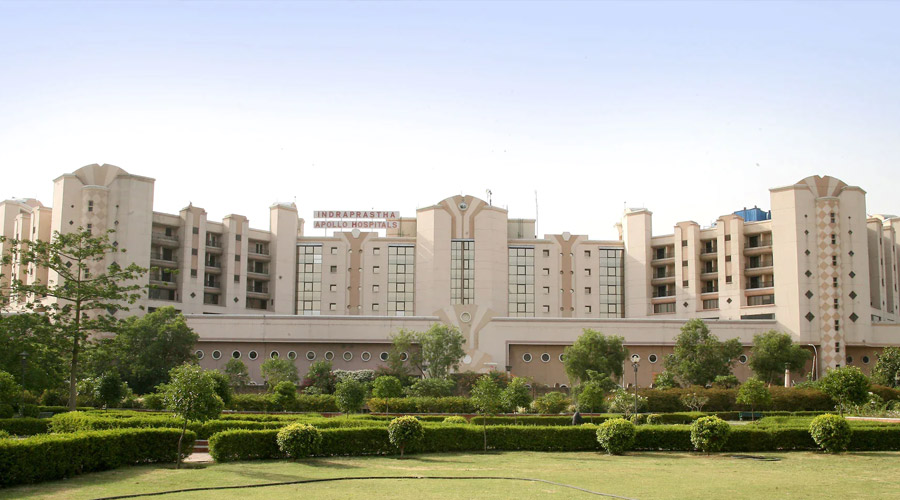
Indraprastha Apollo Hospital, New Delhi
Established in 1996, Indraprastha Apollo Hospital is NABL and JCI accredited. Apollo Group offers 10,000 beds across 64 hospitals, more than 2,200 pharmacies, over 100 primary care & diagnostic clinics and 115 telemedicine units across 9 countries. Indraprastha Apollo Hospital has 52 specialties under one roof.
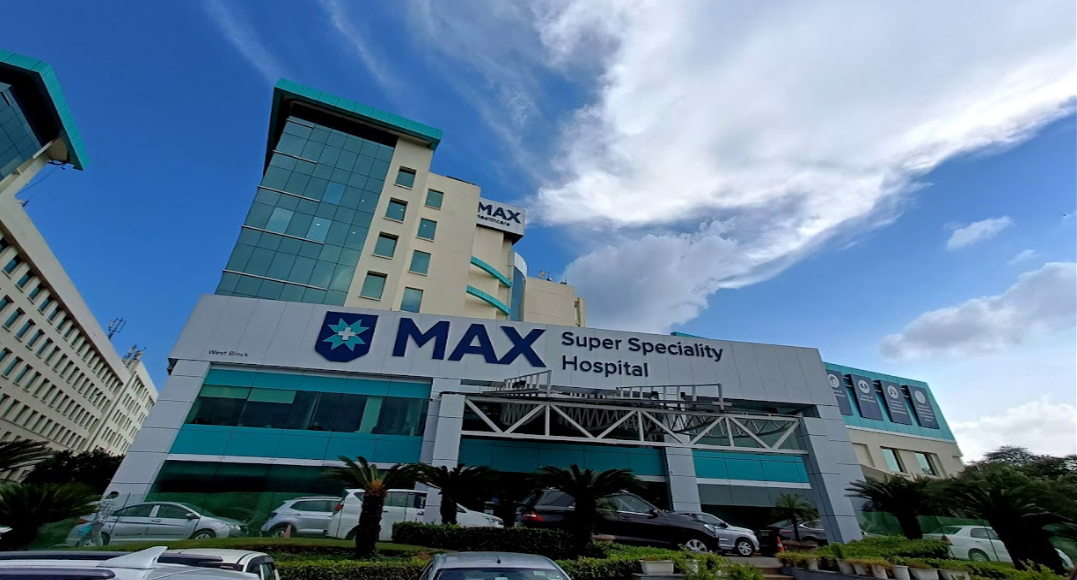
Max Super Speciality Hospital, Saket
Max Super Speciality Hospital Patparganj, Delhi has been one of the top medical care facilities for people living in India as well as internationally. It is home to one of the best speciality treatment centres with the best doctors renowned in India and internationally.
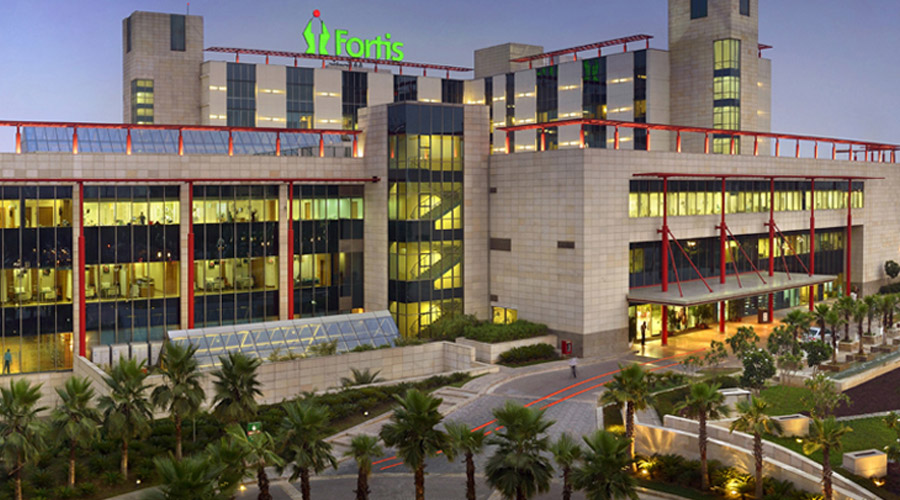
Fortis Memorial Research Institute – Gurugram, NCR Delhi
Fortis Memorial Research Institute (FMRI), a multi-super-specialty, quaternary care hospital, is considered as one of the best hospitals in Gurgaon. Fortis Hospital, Gurgaon, has undergone a thorough on-site review of the quality and safety of care being provided and is committed to continuously meeting rigorous international standards.
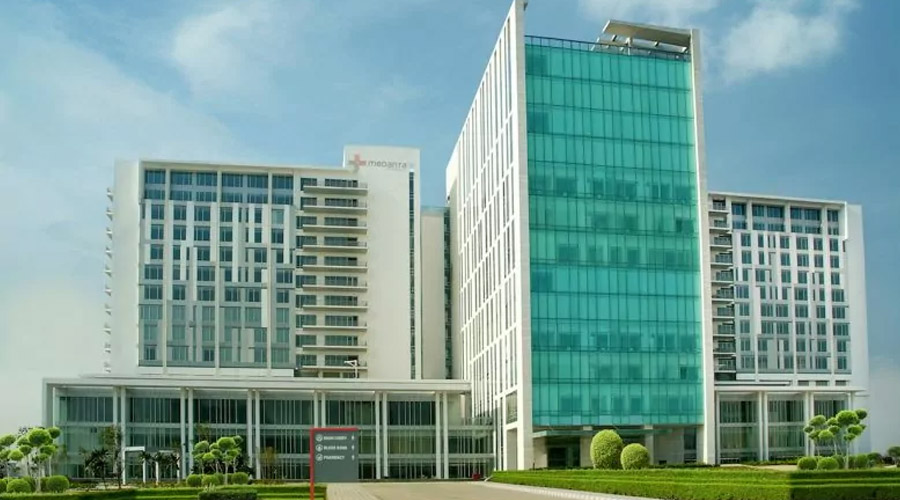
Medanta – Multi-Super Specialty Hospital
Medanta – The Medicity is one of India’s largest multi-super specialty institutes located in Gurgaon, a bustling town in the National Capital Region. Founded by eminent cardiac surgeon, Dr. Naresh Trehan, the institution has been envisioned with the aim of bringing to India the highest standards of medical care along with clinical research, education and training.
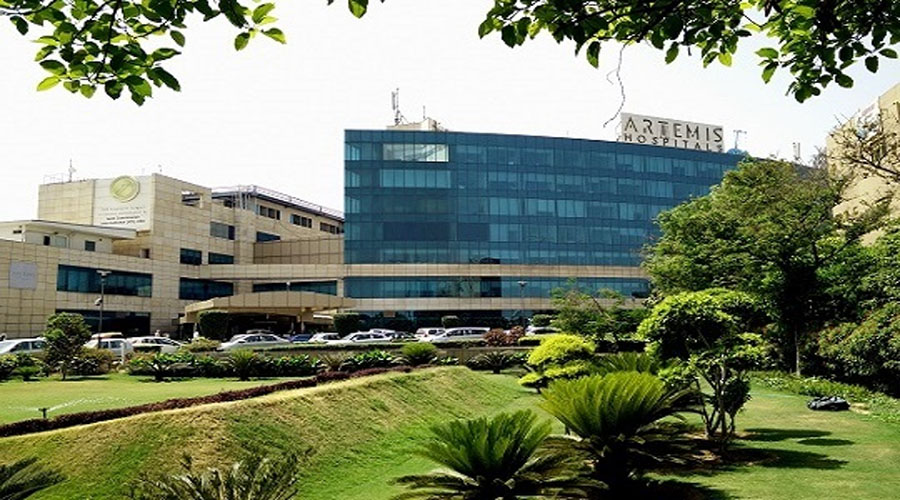
Artemis Hospital – Gurugram, NCR Delhi
Artemis Health Institute, established in 2007, is a healthcare venture launched by the promoters of the Apollo Tyres Group. Artemis is the first Hospital in Gurgaon to get accredited by Joint Commission International (JCI) (in 2013). It is the first Hospital in Haryana to get NABH accreditation within 3 years of start up.
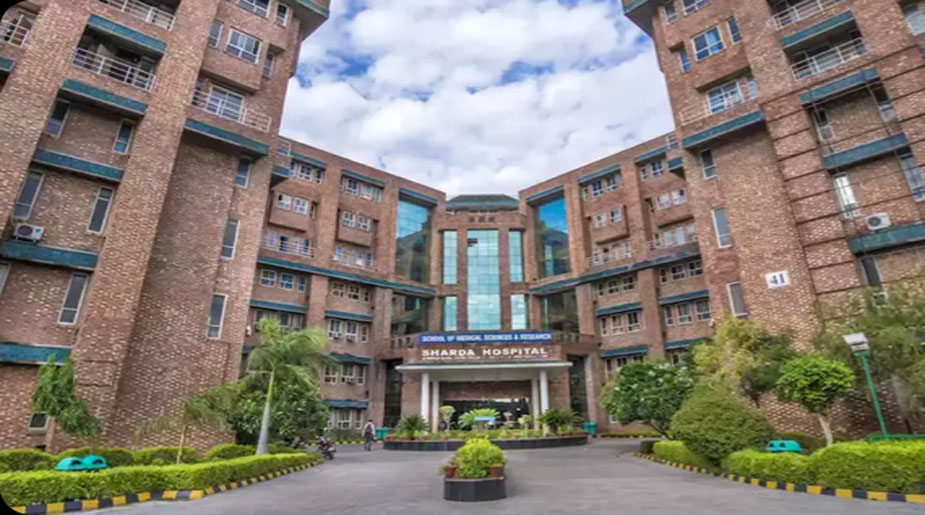
Sharda Hospital – Greater Noida
Sharda Hospital, a state-of-the-art multi super speciality hospital, offers medical care at par the global excellence. Equipped with all modern facilities and sophisticated equipment, Sharda Hospital provides global comprehensive healthcare as preferred destination of healthcare.
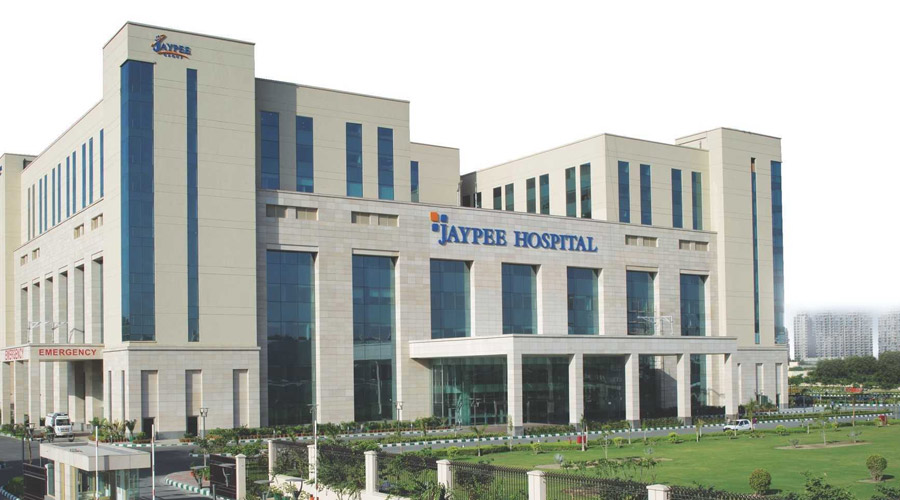
Jaypee Multi-Super Speciality Hospital – Noida
The Jaypee Hospital was conceptualized by our revered Founder Chairman, Shri Jai Prakash Gaur with the vision of promoting world-class healthcare amongst the masses by providing quality and affordable medical care with commitment.
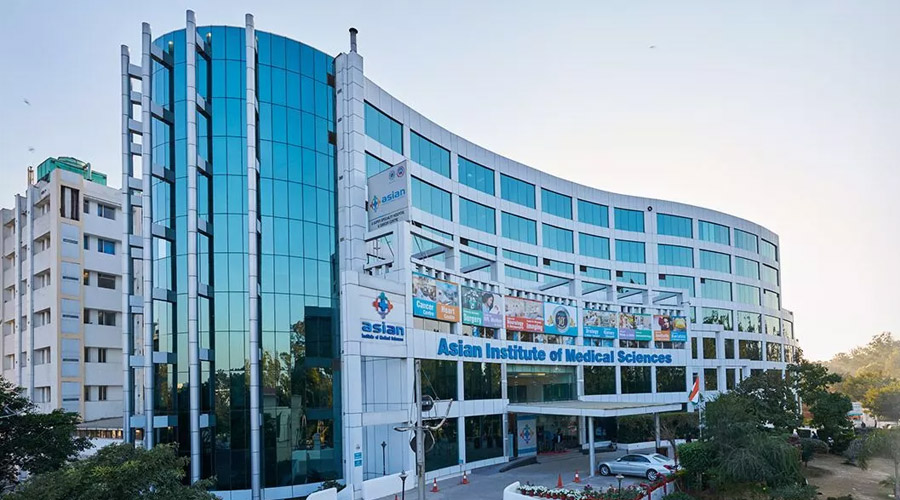
Asian Institute of Medical Sciences
425-bedded super speciality tertiary care hospital is truly futuristic in its services & technology and brings together some of the most talented medical professionals in India. The hospital has been accredited with NABH and NABL accreditations and is equipped with state-of-the-art technology.
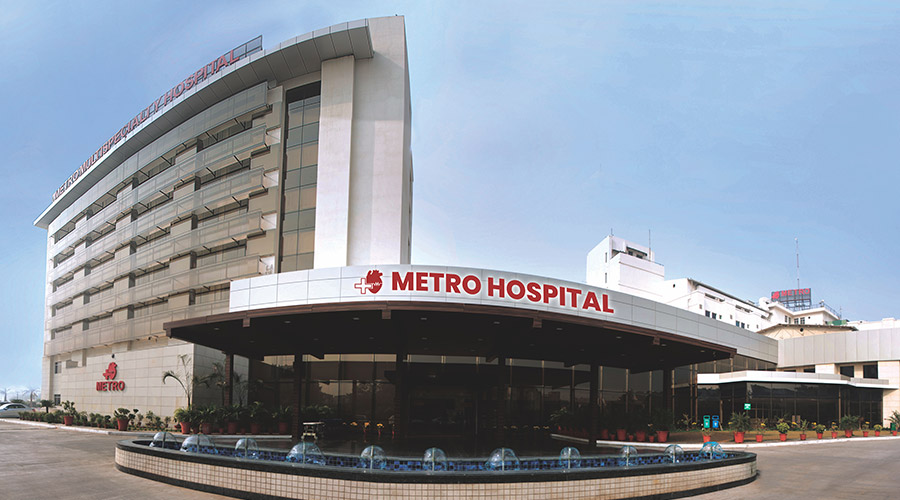
Metro Heart Institute with Multispeciality
Metro Group of Hospitals is a group of 11 hospitals and 1 college (Metro College of Health Sciences and Research), having more than 2500 beds flourishing hospitals and leading one of the biggest group of hospitals in India.
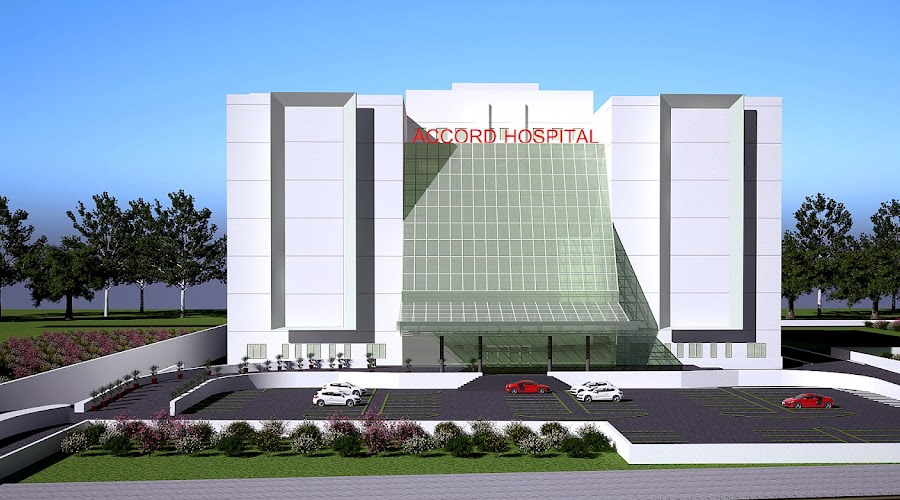
Accord Superspeciality Hospital – Faridabad
The story of Accord began with the thought of leveraging the new age technology with the healthcare infrastructure to serve the patients rightly, effectively, and timely. Accord Superspeciality Hospital is the best hospital in Faridabad, India.
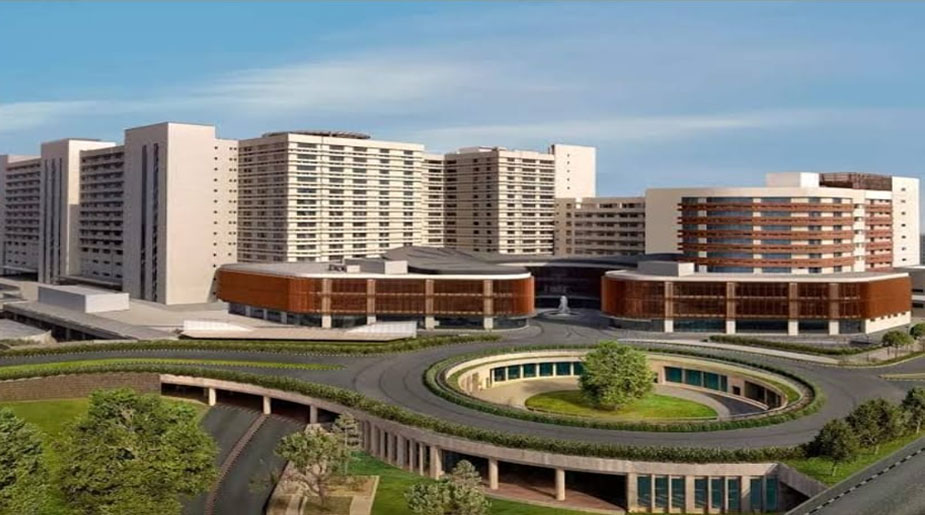
Amrita Hospital, Faridabad
Amrita Hospital, Faridabad is an institution where technology and expertise blend seamlessly with empathy and attention to detail. The hospital in Faridabad Sector – 88 has been designed with its environmental impact at the forefront. The architects began by using construction materials that comply with national and international green building standards.


